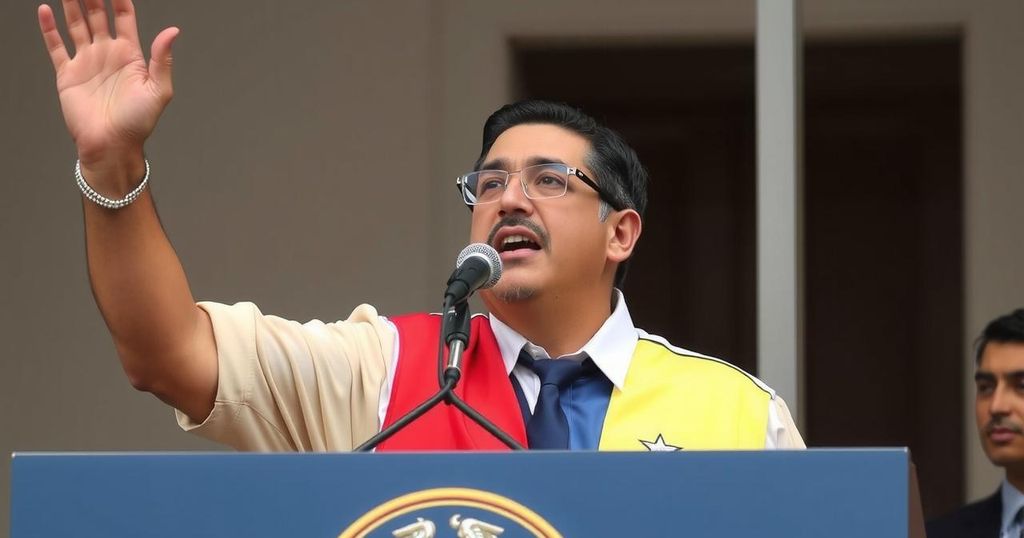International Backlash Against Maduro’s Inauguration as Venezuelan President

Nicolas Maduro’s inauguration for a third term as Venezuela’s president has drawn international condemnation due to allegations of electoral fraud. While the U.S., EU, and other nations criticized the legitimacy of his presidency and imposed sanctions, Russia offered congratulations, highlighting Maduro’s isolated status on the world stage.
Nicolas Maduro’s recent inauguration for a third term as President of Venezuela has sparked significant international backlash, particularly from nations that allege he manipulated the electoral process to secure victory in July. At 62 years old, Maduro remains steadfast in his claims of legitimacy, dismissing allegations of fraud, but his controversial ascent has not gone unnoticed by global leaders. The United States, among others, has reacted strongly to the event, emphasizing the lack of legitimate democratic principles surrounding the election.
Following the inauguration ceremony in Caracas, U.S. Secretary of State Antony Blinken asserted that Maduro “clearly lost” last year’s election, denouncing the event as an “illegitimate presidential inauguration.” In addition, the U.S. has escalated its reward for information leading to Maduro’s arrest to $25 million. Concurrently, the U.S. Treasury Department announced sanctions against eight senior officials complicit in Maduro’s alleged oppression and anti-democratic actions.
Much of Europe echoed these sentiments; the European Union declared that Maduro lacks proper electoral legitimacy. EU foreign policy chief Kaja Kallas noted that he possesses “no democratic legitimacy,” while further sanctions were placed on 15 officials linked to Venezuela’s governance structure. United Kingdom Foreign Secretary David Lammy condemned Maduro’s claim to authority as fraudulent and stated that the electoral outcome “was neither free nor fair.”
UN Secretary-General Antonio Guterres extended calls for the release of all individuals arbitrarily detained in the wake of the elections, emphasizing the numerous detentions of opposition figures and journalists. In contrast, Russian President Vladimir Putin congratulated Maduro, highlighting the polarized global response to his continued leadership. Notably, only two international leaders attended the inauguration, namely the leaders of Cuba and Nicaragua, while many traditional allies opted to refrain from attendance, further illustrating Maduro’s isolation on the world stage.
The context surrounding Nicolás Maduro’s inauguration stems from accusations of electoral fraud that marred the July elections in Venezuela. His government has faced numerous allegations of repressing opposition, thereby undermining democratic norms in the country. The international community, particularly Western nations, has largely viewed Maduro as an illegitimate leader due to this perceived manipulation of the electoral process and subsequent human rights violations. The event marked not only a continuation of Maduro’s controversial governance but also highlighted the increasing tensions between his administration and foreign powers reluctantly engaging with his regime.
The inauguration of Nicolas Maduro has been met with widespread condemnation from the international community, reflecting the significant doubts surrounding his legitimacy as Venezuela’s president. Key political figures from the U.S., EU, and UK have spoken out against his administration, imposing sanctions and demanding the release of detained individuals. The polarized global response further underscores Maduro’s contentious presidency and the challenges faced by the Venezuelan people in their pursuit of democracy and human rights.
Original Source: www.barrons.com







